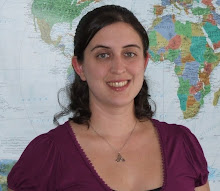When I was a teenager, and even into my early twenties, I loved reading fantasy. Reading is a form of escapism, and what better form of escape could there be but to visit a made up world? I devoured some of the more lengthy series by Terry Goodkind, Melanie Rawn, Robin Hobb and Elizabeth Haydon.
And then one day, I stopped. It was a combination of factors, such as moving from Japan to England and starting graduate school, that brought it about, but I stopped reading fantasy. When I did have time to read, it was either Diana Gabaldon or Jane Austen. When I finished grad school in the UK, I then went to grad school in the US. By the time I was done, I realized I had free time again, which meant I could start reading for fun once more.
For a long time I focused on historical nonfiction, which makes sense since I am a certified history teacher. But eventually I wanted easy-to-read fiction. I wandered the aisles at my local bookstore and a cover for one of Karen Marie Moning's Highlander books caught my eye. And thus my interest in paranormal romance was born.
After a while I realized something: I was writing a book that would be termed "fantasy" yet I hadn't read any pure fantasies, aside from one attempt at Robin Hobb's newest series, in years. True my work is closer to paranormal fantasy, but I knew what I needed do: buckle down and research some new fantasy titles and read them.
I managed to wade through Richelle Mead's Storm Born without too much trouble. Was it a little slower than I liked? Yes. But at least the writing was to the point, and the story a nice length. I tried another book (which I won't name because of the negative review I'm about to give) that seemed closer to my own story: fairies lived below 17th century London. Now the premise of the book was interesting: a dragon was banished to a "star" that turned out to be Halley's comet and 50 years later, the fairies must find a way to defeat the dragon or all of London will be destroyed.
Unfortunately, the writing was long-winded. There were too many scenes of no importance and the writing got on my nerves. (Odd, considering how several reviewers praised the writing as an example of what fantasy should be.) In my opinion, the writer was more concerned with world-building and plot than character development. For example, you have a character who is always calm and collected, and then boom, for one scene only, she's yelling and out of control. The events didn't merit the over-reaction in any way.
This all got me thinking: Why do readers accept long-winded prose and lack of tension in fantasy novels? Any other genre, with the possible exception of literary fiction, would throw the story out or require some serious editing. But not necessarily in fantasy. Some of the masters can create necessary tension, but even Robin Hobb's Shaman's Crossing, while beautifully written, lacked tension most of the time. I grew bored of Robert Jordan's Wheel of Time series a long time ago for that exact reason: nothing was happening. And as much as people will disagree with me, JRR Tolkien's Lord of the Rings is too slow-paced for my tastes.
You may be saying that world-building takes a long time and requires all those hundreds of extra pages. But if that be so, why can Anne McCaffrey or Richelle Mead create fully engaging worlds in under 400 pages? It requires focusing on what's necessary to know, not what's "nice to know." I'm begging fantasy authors: please take out the unnecessary and draw me in. I want tension, not flowery descriptions.
Thoughts and musings by an aspiring author
Blog Archive
Categories
- agents (1)
- AMT (1)
- anime (1)
- Anne McCaffrey (2)
- Densha Otoko (1)
- Diana Gabaldon (1)
- editing (7)
- Elizabeth Haydon (1)
- English (1)
- fantasy (2)
- fiction (4)
- Gabaldon (1)
- Gena Showalter (1)
- hiatus (1)
- ideas (1)
- Japan (1)
- Japanese (1)
- Karen Marie Moning (4)
- manga (1)
- Melanie Rawn (1)
- Melusine (1)
- Otherworld (1)
- paranormal (1)
- plot (2)
- query letters (3)
- Query Shark (1)
- reading (1)
- revision (1)
- Richelle Mead (1)
- Robin Hobb (2)
- romance (1)
- Secondworld (3)
- Sherrilyn Kenyon (1)
- short stories (3)
- style (1)
- synopsis (1)
- teaching (1)
- Terry Goodkind (1)
- texting (1)
- writing (27)
Pages
A Little Glimpse...

- Laura Hoak-Kagey
- United States
- I live slightly south of the "Most Literate City in the US" (Seattle), but we share the same weather, and in my mind, the same title. In addition to reading, I fill the rainy days by creating new worlds and characters who are forced to understand those strange worlds, which isn't too hard considering I've been the "fish-out-of-water" myself whilst living in Japan and England. I've finished my (hopefully) debut novel and am seeking representation.
Powered by Blogger.
5:32 PM
Subscribe to:
Post Comments (Atom)

0 comments:
Post a Comment